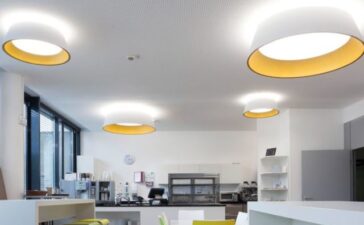When it comes to the heating and cooling in our homes, the vast majority of us don’t really know much about what we are working with. So long as the temperature is right where we want it to be, who really cares what it is?
Well, if you are to the point where you need to buy a new HVAC unit, it can help to know whether to go with a heat pump or an air conditioner. Knowing the difference between the two, as well as how they can work within your home, is important.
This is your guide to what the differences are, how they operate, and why each could make sense in your home.
How They Operate
Before you can decide which one is the best for you, it helps to know how they operate. There are definitely misconceptions regarding how air conditioners work. The thought is that they are similar to furnaces: furnaces make heat to warm the home, but air conditioners don’t actually create coldness that keeps the air cool.
Basically, it takes heat and moves it from one area to another. Warm air gets into the indoor components, passing over the evaporator coil. The refrigerant in the coil pulls the heat from the air. That refrigerant then moves to the outdoor components through a designated line, before ultimately being pressurized by the compressor. That refrigerant then moves into the condenser coil, which lets that trapped heat into the outdoor air.
To put it simply, air conditioners take the heat from the inside of your home and move it outside. There is no production of ice or cool temperatures being infused into the air. Where things can get confusing is that heat pumps are basically the same in that they move heat from inside to outside.
The main thing to keep in mind is that there are two types of heat pumps: geothermal and air source. The latter is just like an air conditioner in that it moves hot air from inside your home to the air outside of it. Geothermal, meanwhile, take that hot air in your home and deposit it into the ground or a water source.
How They Heat
This is where the versatility of the heat pump comes into play. Simply put, air conditioners do nothing for keeping your home warm. They have that single function of pulling the warm air out of the room and getting rid of it so that your home stays cool.
But when the temperatures start to dip, your air conditioner can become quite one note. A heat pump, however, provides heating. That’s because the process basically reverses and goes something like this:
That condenser coil is used to extract heat from outside, absorbing it through the refrigerant. The refrigerant travels into the indoor components and their respective evaporator coils. The heat energy that gets emitted from the evaporator coils then gets mixed into the air that circulates throughout the rest of the system.
Geothermal pumps are the same except that they take heat from their water source or the ground instead of the air outside. The heat pump offers versatility in that it can be used year-round, whereas the air conditioner is really only good when temperatures rise.
How Efficient Are They?
Energy efficiency is more important than ever before and with good reason. For decades, we have been consuming nonrenewable energy at an alarming clip. In the past decade alone, we as a society have made serious strides to cut down on energy usage.
That means having more efficient means of heating and cooling. Efficiency is a major concern when it comes to the air conditioner versus heat pumps. The more energy-efficient the system is, the less that it consumes. This means a smaller carbon footprint and a smaller utility bill.
There is an efficiency standard out there called the seasonal energy efficiency ratio or SEER. Comparing these ratings gives you a good idea of how efficient each unit is when cooling (remember that air conditioners don’t heat as well).
Air conditioners can run into an efficiency problem when temperatures get to be exceptionally high. They are designed to cool the home when the difference between outdoor and indoor temperatures are less than 20 degrees Fahrenheit at the most. During the summertime, those temperatures can get well above that 20-degree difference. That’s when an air conditioner is unable to run quite so efficiently.
That said, heat pumps have no problem when it comes to outdoor temperatures. They are meant to deliver the same level of efficiency no matter what the temperature difference between outdoors and indoors happens to be.
When the conditions are ideal, there is little difference in efficiency between the two. When heating mode is used, there is a substantial jump in energy efficiency. But when it comes to cooling, heat pumps (either kind) are way more efficient than their counterparts.
The energy efficiency range for an air source heat pump can be between 175% and 300%. Geothermal heat pumps, meanwhile, can run between 300% and 600% efficiency. Basically, it means that for every unit of electricity that is consumed by the pump, it is producing that much more in heating and cooling.
Finally, there is the matter of extreme cold. Heat pumps aren’t ideal when temperatures drop below freezing. Depending on where you live, that may not be a problem. But if temperatures get frigid, having a backup heating system is ideal.
How Do Prices Stack up?
In the battle between air conditioning and heat pumps, price is undoubtedly going to play a major factor. The simple fact of the matter is that most people have a specific budget that they must work within. That means having an affordable installation and a monthly rate that they can justify.
When it comes to finding the right HVAC system, all of the other features matter but not quite as heavily as price does. The simplest fact is that a heat pump is more affordable on the whole compared to air conditioners.
But because of its efficiency, the geothermal heat pump system is going to be the most expensive of all. You can find heat pumps and air conditioners that range from around $1,000 to a few thousand for the higher-end units.
Geothermal heat pump systems, meanwhile, can start at about $10,000 and get to be as high as $30,000 or more on the high end. The most expensive of those units is the ground loop system, as efficient as it may be.
The good news about the latter is that there is no need for a backup heating system. With air source heat pumps, though, a backup heating system would be required. That is an additional cost to keep in mind when going with a heat pump.
Making the Right Decision
If you are stuck between a heat pump and an air conditioning system, there is no easy answer. There are factors at play, primarily cost and location. Living in certain climates means being able to have a heat pump without the need for another system.
The heat pump is a great choice almost no matter where you live because of its versatility. Keep in mind that, when facing extremely cold temperatures, a backup heating system is going to be required for any air source heat pumps. If you go with the geothermal system, then you won’t need the backup, but the installation and upfront costs will be exponentially more.
Cost should not be the only factor involved in the process, but it is certainly the most important for the vast majority of people. Finding an efficient option that works best for your climate means finding something that will cut down on energy costs and keep your home comfortable at all times.
Installation
When you make your decision, the installation plays an important part in all of this. No matter what system you choose, having it properly installed can make a huge difference. There are a lot of potential issues that could be avoided with a proper installation.
It can be all too easy to cut corners to keep costs down, but they will come back to bite you in the long run. Just because the installation is inexpensive now doesn’t mean that it won’t add up to serious costs down the road.
Make sure to get several quotes and to vet the company that you ultimately choose. Spending a few more bucks on the installation is advisable because at least you have the peace of mind in knowing that it was done the right way.
It is the peace of mind that you deserve, but it also means being able to keep your home comfortable at all times. No matter which one you choose, you will end up with an efficient system that can fit into your budgetary limitations. With the knowledge provided here, you will be better prepared than ever.





